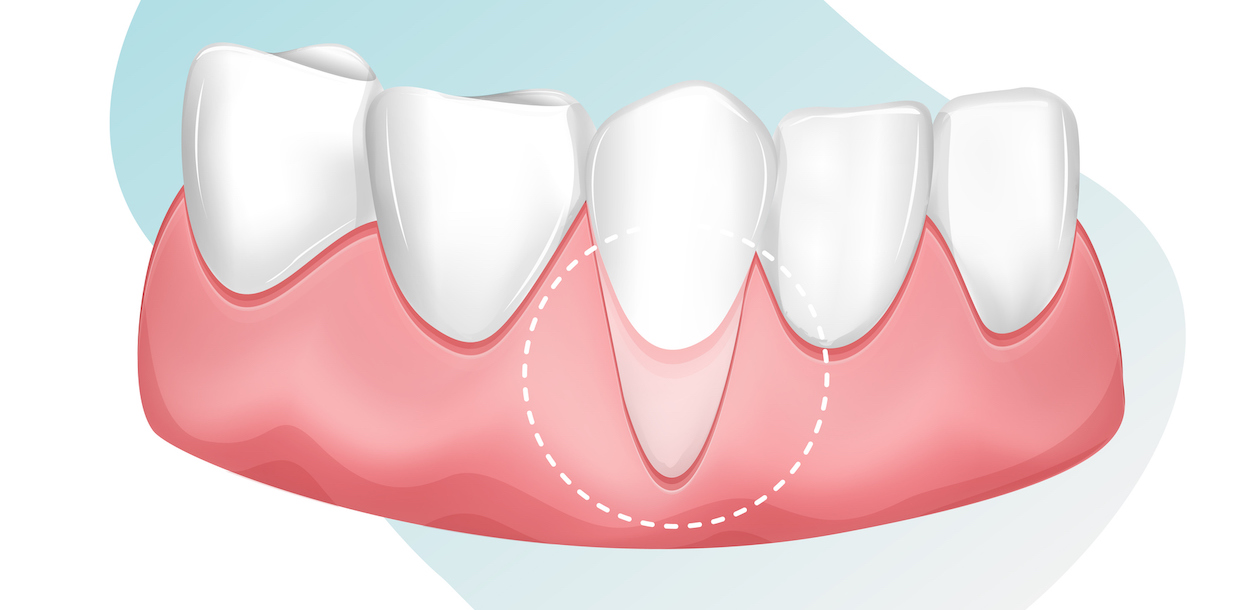Receding Gums – What you need to know
Receding gums is a concern for everyone in their later years. It not only has an aesthetic impact on your smile but can have serious implications for your dental health. Some of the causes of receding gums can be avoided but others can’t.
Symptoms of Receding Gums
The gums either wear away or pull back exposing more of the tooth or roots. People with receding gums may experience one or more of the following symptoms.
· Sensitive teeth
· Pain
· Bad taste in mouth
· Bad breath
· Bleeding
· More of the teeth become visible
· Infection may cause pus
Causes of Receding Gums
There are several main reasons why people suffer from gum recession.
Age
People over the age of 65 are more likely to suffer from receding gums than younger people. Age is one of the most common causes of gum disease which can lead to receding gums.
Gum Disease
Periodontitis (gum) disease is common in people who suffer from diabetes, dry mouth and a weak immune system. People are more likely to suffer from these conditions later in life.
Smoking
Smoking is a significant risk factor for gum disease. Products in cigarettes and e-cigarettes stick to teeth and gums. Bacterial plaque (film) and tartar (hardened plaque) form. If it’s not removed, the bacteria can eat into the gums. Smoking also reduces oxygen levels in the blood so infected gums can’t heal.
Poor dental hygiene
Daily brushing and flossing don’t guarantee you won’t suffer from receding gums, but it can reduce the severity. Without brushing and flossing, bacteria build around the gumline. The bacteria cause pockets (or gaps) to appear between the teeth and gums. Keeping the level of bacteria down will help the health of gums.
For some people, it’s not a lack of dental hygiene that causes their recessed gums. Aggressive brushing or using a hard toothbrush can cause gums to pull away from teeth. It’s important to brush thoroughly but gently so you don’t damage your gums or teeth.
Bruxism
Teeth grinding and clenching is a common condition. When the grinding is severe, it can cause receding gums and eventually lose teeth.
Treatment of Recessed Gums
Gums don’t repair themselves like other parts of our body. While some treatments are available for receding gums, this is a case of prevention is better than the cure. Most people with receding gums will suffer the symptoms for the rest of their life.
Antibiotics
When gum recession is caused by periodontal disease, a periodontist may use antibiotics to reduce the rate of infection. Antimicrobial rinses may also be used to kill the bacteria. For some people with severe periodontal disease and recessed gums, the only option is surgery.
Deep Cleaning
A periodontist can help patients with deep cleaning of the teeth and gums to remove tartar. Special instruments are used to clean under the gum line. Some patients may need the teeth roots planed to remove the rough surface to make it easier for the gums to reattach to roots.
Surgery
When the bacteria are caught well below the gum line, flap surgery is required to pull back the gum to thoroughly clean it to remove the bacteria. After cleaning the gums are stitched into place around the teeth. Also known as a gum graft, the surgery removes bacteria but also improves the aesthetics of a patient’s smile. Some people dislike the look of their exposed roots and extra-long looking teeth. The surgery can return the gumline to its original position.
Treat Bruxism
For people who are damaging their teeth and gums through grinding at night, they may need a guard. Their dentist or periodontist may recommend they wear a guard similar to a sports mouth guard to protect their teeth and gums.
Get in Touch
For more information about receding gums, call (08) 9321 1632 or contact us online.

